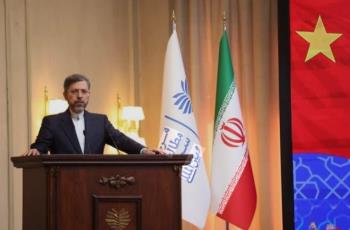Alwaght- Khaled Meshaal, the head of Hamas, is paying Saudi Arabia another visit since July in the hunt for a new era in the previously dubious relations between the Palestinian group and Riyadh.
Meshaal's expected trip to Riyadh was announced by high-ranking Hamas official, Ismail al-Ashkar, who said the movement is seeking to improve relations with the Saudi kingdom.
"All the current circumstances encourage sustaining bilateral relations between Saudi Arabia and the Hamas movement for the best interest of the Palestinian people," al-Ashkar announced.
The anticipated meeting between the Hamas delegation and Saudi officials is supposed to tackle several Palestinian issues including the long-drawn-out inter-Palestinian reconciliation and the suffocating Israeli siege on the Hamas-run Gaza Strip.
Yet, what hasn't been disclosed is what is worth taking note of. Reading between the lines of Hamas' recent statements in the backdrop of regional developments, is enough to understand that the group is distancing itself from Iran and wooing Arab states instead, a move that political observers are calling a strategic mistake.
Since 2011, when a so-called Arab Spring turned the little stability that the region had sustained upside down, sprouting the leaves of chaos and the fruit of terrorism, Hamas has been gradually showing its true colors.
The green in its flag and its Islamic inscription is unsurprisingly similar to that of Saudi Arabia. However, politically, the Brotherhood-affiliated Palestinian movement's relations with Riyadh had been icy.
In fact, Hamas political leaders, including Meshaal, warmed up to Qatar and decamped to Doha in 2012 after their ungraceful return of favor to Syrian President Bashar Assad who had always shown hospitality to Hamas and Palestinian refugees. Shortly after the conflict broke out in the Syrian Arab Republic, Hamas took a disconcerting stance and sided with the militants against the government. By doing that, it turned its back to one of the few countries that supported the Palestinian resistance against the Israeli occupation.
Hamas' position toward the Syrian crisis was a turning point in the group's relations with Damascus and, consequently, with the Axis of Resistance spearheaded by Iran which has been its main endorser in its wars and ongoing confrontations with the Israeli regime. Hamas, basically, bit the hand that feeds it.
Saudi Arabia, Qatar, and other Arab states in the meantime were rallying opposition against Assad by funding, arming, and training terrorist groups. Despite internal bickering and having separate hidden agendas, they all wanted Assad down. Hamas was betting on Assad's removal and so followed their footsteps.
Closer to its homeland, Hamas has lost another bet. While Assad remains steadfast in power, the Egyptian political scene was less resilient in the face of attempts to destabilize it. The rise of the Muslim Brotherhood to power gave Hamas the false impression that it could count on an Islamist administration in Cairo. Yet, when former President Mohammad Morsi was removed from power and Abdul Fattah Sisi replaced him, the Palestinian movement faced disillusionment and began to revise its calculations.
By then, it was too late to make amends with Iran. It has already distanced itself from the Resistance Axis. The only option it faces now is to knock on Arab states' doors. Not just any Arab states, but the same states that have failed the Palestinian cause by maintaining relations with the Israeli regime. Now Hamas, once the symbol of resistance in the face of Israeli occupation, is reportedly holding clandestine meetings with Israeli regime officials.
With Meshaal set to return to Riyadh to court the Saudis after shaking hands with King Salman, and the distance between Hamas and Tehran growing longer, many observers are wondering whether the movement has sold its soul to the enemy by placing the Palestinian cause in the wrong hands.
Fatima Hanan Elreda


























